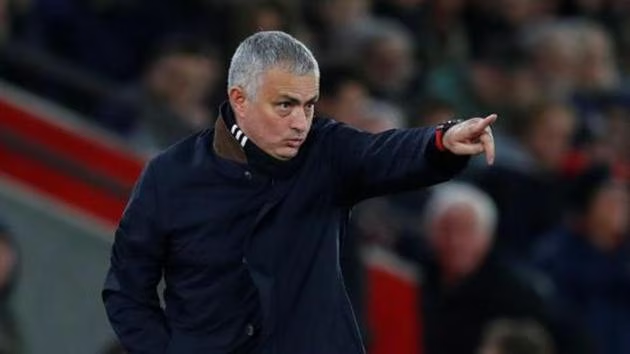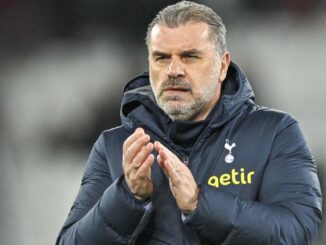
UPDATED NEWS : Why Tottenham Have Been ‘Frustrated’ by Some Reports Coming Out About Ange Postecoglou … see more
Tottenham Hotspur’s season under Ange Postecoglou has been one of relative optimism, especially in comparison to the struggles of recent years. The Australian manager has brought a fresh approach to North London, with an exciting brand of attacking football that has rejuvenated a squad that, at times, appeared stagnated under previous managers. Yet, despite the positive results and the visible progress made on the pitch, Tottenham have reportedly expressed frustration over some of the media reports surrounding Postecoglou. This frustration has become a topic of discussion for fans and analysts alike, as it raises questions about the relationship between a football club and the media, the pressures on managers, and the dynamics of public perception.
The Rise of Ange Postecoglou: A Breath of Fresh Air
When Postecoglou was appointed as Tottenham’s new head coach in the summer of 2023, the decision came with mixed reactions. The Australian was relatively unknown to many outside of the footballing community, especially in the Premier League. However, he had earned respect in other leagues, particularly with his success in Scotland, where he revitalized Celtic, and in his native Australia, where he led the national team to victory in the AFC Asian Cup.
Tottenham’s decision to hire Postecoglou was bold, signaling a shift in strategy. Instead of opting for a big-name manager with prior experience in the Premier League, the club took a chance on a manager with a clear footballing philosophy — one that prioritizes possession-based football, pressing, and attacking play.
Early signs in the 2023-2024 Premier League season were positive. Postecoglou quickly made his mark with a new tactical setup, and Tottenham fans were impressed by the fluidity of their team’s attacking play. Key players such as Son Heung-min, Dejan Kulusevski, and James Maddison thrived under his approach, and Spurs appeared more cohesive than in years past.
However, despite the positive performances on the pitch, some media outlets began to frame the narrative around Postecoglou in ways that have reportedly frustrated the Tottenham hierarchy.
The Source of Frustration: Media Narratives and the ‘Postecoglou Effect’
Tottenham’s frustration with certain media reports seems to stem from the portrayal of Postecoglou as a “temporary fix” or an “unknown quantity” whose success is still uncertain. While most of the frustration is directed at the media’s occasional skepticism, there are a few key points of contention that have triggered Spurs’ discontent.
1. Unwarranted Criticism of Tactical Adaptability
One of the most persistent themes in some media reports is the suggestion that Postecoglou’s attacking brand of football might not be sustainable at the highest level, particularly in the demanding Premier League. The criticism has revolved around the vulnerability of his tactics, which often leave Tottenham exposed defensively. While it’s true that Postecoglou’s football is open and expansive, creating space for counter-attacks and high-risk situations, some reports have questioned whether such a style can hold up in big games, especially against well-drilled sides.
Tottenham officials, including Postecoglou himself, have grown frustrated with these narratives, which often undermine the positive aspects of the team’s play. While no tactical system is impervious to criticism, many feel that the Australian’s football philosophy is being unfairly scrutinized before it has had a chance to evolve fully. Postecoglou’s tactical flexibility, which allows him to adjust his approach based on the situation, is often underplayed.
Critics tend to focus on individual errors or the occasional defeat, neglecting to highlight the overall improvement in the team’s attacking output and style of play. For Postecoglou, this is particularly frustrating because it misrepresents his vision — which is not about short-term results but long-term evolution.
2. The Ongoing Comparisons to Conte and Mourinho
Another source of frustration for Tottenham’s hierarchy is the continued comparison between Postecoglou and his predecessors, Antonio Conte and José Mourinho. Both were high-profile managers who were brought in with expectations of success, but neither managed to produce sustained results or foster a connection with the fanbase. Conte’s pragmatic style and focus on defensive solidity felt out of place in a club historically known for attacking football, while Mourinho’s defensive approach often clashed with the supporters’ expectations.
With Postecoglou, Tottenham hoped for a change of direction — a return to an exciting, forward-thinking brand of football. Yet some reports continue to emphasize the comparison between Postecoglou and his more celebrated predecessors, framing him in the context of what Spurs failed to achieve under Conte and Mourinho. While comparisons are inevitable in football, they can be frustrating when they overshadow a manager’s unique achievements and abilities.
Rather than being given the opportunity to carve out his own legacy, Postecoglou is sometimes pigeonholed into a narrative shaped by the failures of past regimes. Tottenham, as a club, may feel that such framing is counterproductive, particularly when it is still early days in Postecoglou’s tenure.
3. The Distraction of External Speculation
External speculation surrounding the future of the club and Postecoglou’s standing as manager has also contributed to the frustration. In the modern media landscape, rumors and speculations often proliferate, especially when a club is undergoing transition.
Some reports have questioned whether Postecoglou’s style would be a good fit for a club with lofty ambitions, given the inconsistency that can accompany a high-pressing game. Others have suggested that Spurs could soon become disillusioned with the Australian’s approach if they fail to meet the expectations of qualifying for the Champions League or winning silverware. The increased scrutiny from the media, particularly when there are outside pressures regarding Tottenham’s standing in the Premier League, has added to a sense of unease within the club.
While Tottenham’s board and supporters have largely backed Postecoglou thus far, the external noise can be distracting, especially when it’s based on hypotheticals rather than actual on-field performance. Tottenham might view such reports as an unnecessary distraction, particularly when they are focused more on potential failures rather than the manager’s strengths.
4. A Personal Criticism of Postecoglou’s ‘Old-School’ Persona
Postecoglou’s public persona is often described as ‘no-nonsense’ and ‘old-school,’ with some pundits pointing to his direct manner and lack of engagement with the media as signs that he might struggle to cope with the media circus that surrounds the Premier League. However, while his style might be more understated than some of the more flamboyant or attention-seeking managers in the league, this is a key part of what makes Postecoglou a distinctive figure.
Tottenham have likely been frustrated by the constant narrative that Postecoglou’s personality may be a barrier to success, particularly given that his tenure at Celtic was marked by success, despite similar criticism. In truth, Postecoglou’s ability to galvanize a squad and get the best out of his players has not been given enough credit in the media, and the focus on his demeanor rather than his achievements can feel reductive.
The Bigger Picture: Why Tottenham Are Playing the Long Game
Tottenham’s frustration with the media coverage surrounding Postecoglou is about more than just protecting their manager’s reputation. It’s about the club’s long-term vision, which they believe is in line with the values Postecoglou brings to the table. The frustration stems from the short-sightedness of certain media reports, which fail to appreciate the full scope of what the manager is building.
For Tottenham, the appointment of Postecoglou was not merely about securing immediate results but about creating a sustainable footballing philosophy that could stand the test of time. Unlike previous regimes, where the emphasis was on quick fixes, Tottenham’s hierarchy sees Postecoglou as a long-term investment. As such, they expect patience — not just from the players but from the media and supporters alike.
While reports may continue to question his tactics and overall fit for the club, Tottenham are committed to supporting Postecoglou through the inevitable ups and downs of a manager’s tenure. The frustration expressed by the club is not just about defending Postecoglou’s methods but also about steering the narrative toward a more balanced view of what he has achieved so far and the potential he holds for the future.
Conclusion: A Work in Progress
Ange Postecoglou’s tenure at Tottenham Hotspur is still in its early stages, and while media reports have at times been critical or overly speculative, it’s clear that the club sees him as part of their long-term vision. The frustration voiced by Tottenham is reflective of a desire for stability and support in the face of ongoing change.
As Postecoglou continues to build his team and instill his footballing philosophy, the hope is that the media will begin to appreciate the complexities of his approach rather than reduce it to a series of narratives focused on potential pitfalls. Tottenham’s faith in their manager suggests that the club is playing the long game — one in which patience and understanding will be key to future success.
In the coming months and years, Postecoglou will undoubtedly face challenges, but with the backing of the club and a clear tactical identity, he has the potential to transform Tottenham Hotspur into a force to be reckoned with in English football. Until then, it will be important for both media and supporters to allow him the space to grow and develop in his new role, free from the pressures of comparisons and speculation.

Be the first to comment